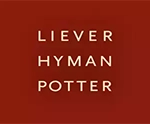American Association for Justice
News Brief
The AP (3/18, Johnson) reports that “a New Jersey judge has rejected efforts by consumers who took the painkiller Vioxx [rofecoxib] to be able to sue as a group to recover their out-of-pocket costs,” according to Merck & Co.
Bloomberg News (3/18, Voreacos, Feeley) reports that “lawyers sought to recoup the cost of the drug for all consumers outside California who bought Vioxx from June 1999, when it went on the market, to October 2004, when Merck withdrew it over safety concerns. Consumers also sought punitive damages.” Superior Court Judge Carol Higbee said that “consumers who sued didn’t meet the legal requirements for such a group claim under the New Jersey Consumer Fraud Act.” Judge Higbee said that “‘problems with individualized issues of proof would be unmanageable,’ such as how much each consumer paid for the drug and everyone’s reason for taking it.” According to Higbee, “This decision may indeed be a death knell to the claims of most individual consumers. However, the court cannot find that a class action is a superior form of resolution, either.”
The Recorder (3/18, Hill) reports, “San Francisco lawyers rescued Wal-Mart and a group of pet food manufacturers on Monday from a class action that could have led to millions of dollars in damages.” Evan Nadel, who was one of the lawyers representing Wal-Mart said, “My first impression was I really thought that was a huge stretch for them to get class treatment of a fraud claim.” The Recorder adds, “Typically, plaintiffs try to certify a class only after getting a chance to discover more facts about a case.” However, “courts allow defendants to deny certification early on if the law simply wouldn’t support it.”

